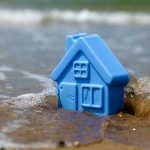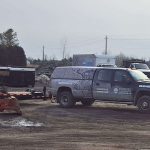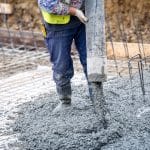As critical as properly functioning doors and windows are to you and your home’s safety and security, homeowners insurance also serves a very important role in protecting your home. Homeowners insurance, depending on your provider and policy, can provide coverage on a wide range of items. This includes basic coverage, which can include insuring your home and the structures on your property, it can potentially insure other causes of loss resulting from environmental related phenomenon such lightning and hail storms, along with insuring the personal belongings within your home.
However, what about unforeseen or unexpected circumstances that can unexpectedly arise and severely impact your home’s foundation resulting in, consequently, hefty repair costs? With foundation damage occurring in numerous ways — invasive tree roots, leaks, and flooding — it is safe to say that the answer as to whether or not your homeowner’s insurance policy will cover these occurrences is not always simple or clear.
Tree Roots
Residing in an Ontario-based home generally means being surrounded by a vast amount of trees. While trees can provide your home with numerous benefits such as shaded areas and privacy coverage, they can, however, cause detrimental damage when tree roots become invasive, finding their way under your home’s foundation, causing cracks.
This very scenario is one that an Ottawa homeowner experienced this past summer, where trees, in search for water to quench their thirst, burrowed their roots under this homeowner’s house, sucking the moisture from the clay beneath. The cost of the damage ranged from $20,000 to $30,000, however, when it came time for the homeowner to lean on his insurance provider, the insurance provider responded through the cancellation of his home insurance policy.
According to Toronto-based industry and consumers relations manager, Pete Karageorgos, because insurance policies are simply a contract between an insurance provider and the customer, both parties possess a certain level of responsibility while bound by the contract. The insurance provider, as outlined by the Insurance Bureau of Canada, has the legal right to cancel a policy at any time. In this particular case, this homeowner experienced a policy cancellation when the insurance provider felt that there was a change in risk that they were not made aware of. Therefore, carefully reviewing the details and conditions of your homeowner’s insurance policy and communicating with your insurance provider will help ensure that you have the proper coverage for your home and individualized circumstances.
Leaks
Leaks can occur in numerous ways — from faults in your home’s plumbing such as burst pipes, to leaky basements where, slowly over time, water finds its way into your basement through your windows or foundation — which, regardless of how it occurs, can have the potential to affect the livelihood of your foundation. When it comes to burst pipes occurring for instance under your home’s slab foundation, the leak can stress the foundation resulting in cracks occurring from either waterlogged soil that gets washed away leaving little support under the foundation or from clay soil, that resultantly expands when it undergoes large changes in moisture volume, creating a bulge beneath the foundation. In contrast, when water seeps into your home through ill water-sealed windows and tiny cracks and holes within your foundation wall not only does it encourage mold growth but it also decreases your foundation’s structural integrity.
When it comes to repairing your leaky foundation, one thing to note is that while both sources of leaks can be incredibly headache inducing, it is only the resulting damage from unexpected and unpredictable occurrences such as a burst pipe or overflowing toilet that most policies classify as water damage. As for the damage that results from leaky basements from normal levels of rainfall? This is generally not covered by your insurance provider and is chalked up to a matter of being the homeowner’s responsibility to diligently ensure the regular maintenance and inspection of the home both internally and externally for possible points of water or moisture entry. Therefore, where leaks are concerned, it becomes critical to fully understand how your insurance providers classify and provide coverage for various types of damages along with ensuring your home undergoes regular maintenance and inspection.
Overland Flooding
Nothing wreaks havoc on a home and its foundation quite like flooding does, or more specifically overland water which is defined as water that gets into your home through either the foundation, basement floors or walls from powerful rainstorms or rapidly melting snow. When this occurs, it can have detrimental effects on your home’s foundation, causing it to weaken and crack. The Government of Canada reports that floods are the most commonly occurring natural hazard in Canada, with the potential of occurring at any time. Despite this, however, if you’re a homeowner living in low-lying, flood-prone lands with homeowners insurance, think twice before breathing a sigh of relief — the startling reality is that most basic homeowners insurance policies could leave your home unprotected if a flood were to occur.
While overland flooding is not generally covered by most basic homeowners insurance policies for the simple reason that insurance providers view this type of damage as “foreseeable and preventable with proper home maintenance” when contrasted against, as mentioned above, more unexpected sources of water damage such as burst pipes or even a broken dishwasher for example, which is generally covered under the most basic homeowners insurance policies. However in more recent years, many insurance providers, in their attempt to meet their clients’ growing demand for water-related damage coverage, have adjusted their policy offerings accordingly to include separate, specific coverage for overland water. The level of coverage received and the cost of that coverage depends on your insurance provider’s analysis of how at risk your neighbourhood is for flood-related claims.
The Final Verdict?
First and foremost, when it comes to your homeowner’s insurance policy, you cannot always rely on your insurance provider to cover foundation repairs. As a homeowner, your insurance provider believes that you maintain a certain level of responsibility in ensuring the general maintenance and upkeep of your home and its foundation, including taking all the necessary steps to reduce potential foundation damage. Closely reviewing your insurance policy will ensure that you fully understand how your policy works, giving you the ability to add on additional protection as you see fit.
How can you ensure your foundation is ready for environmental factors and shifting Canadian climate? Lean on Affordable Concrete Services for professional, expert level knowledge and experience in foundation waterproofing and concrete repair.
